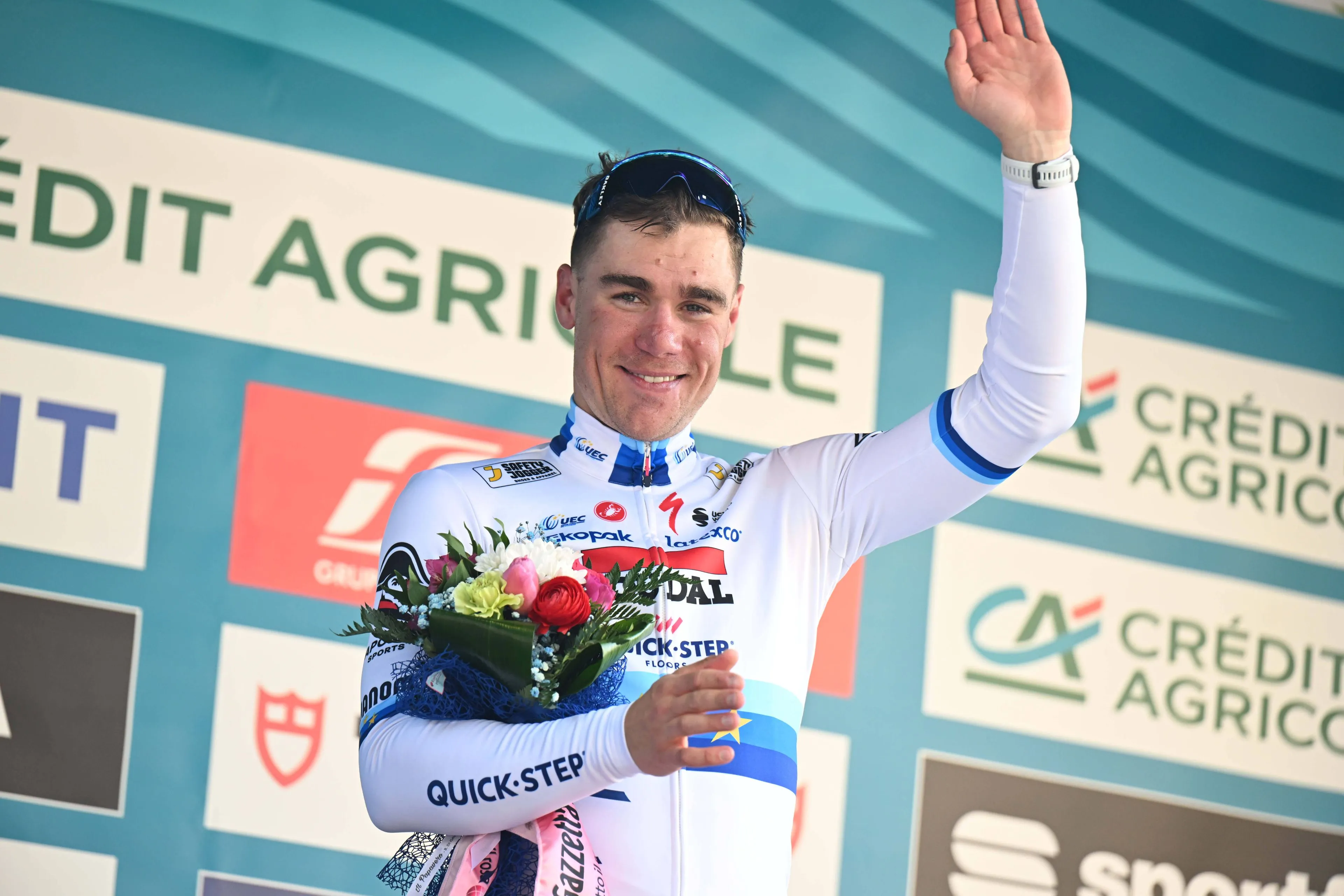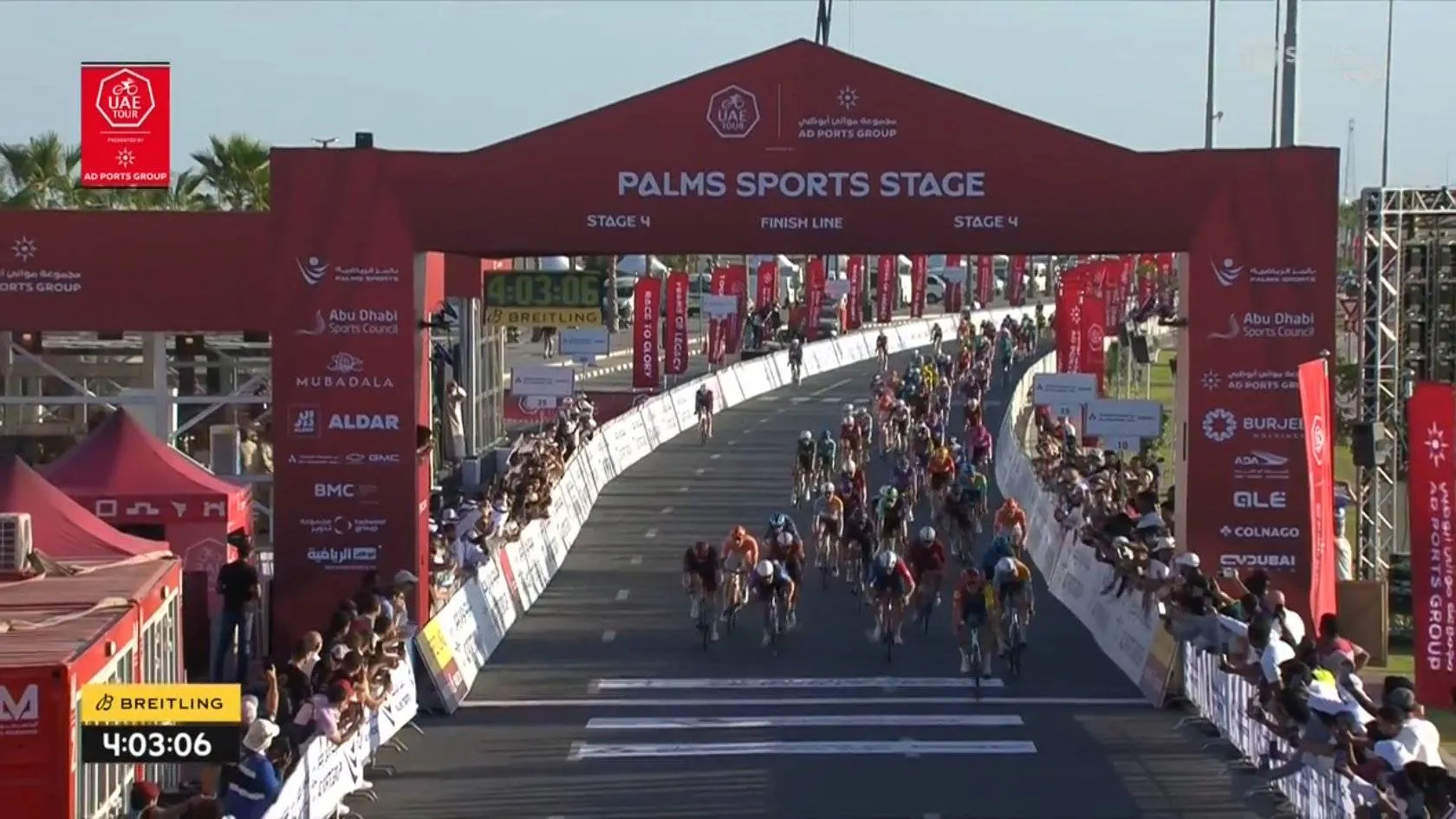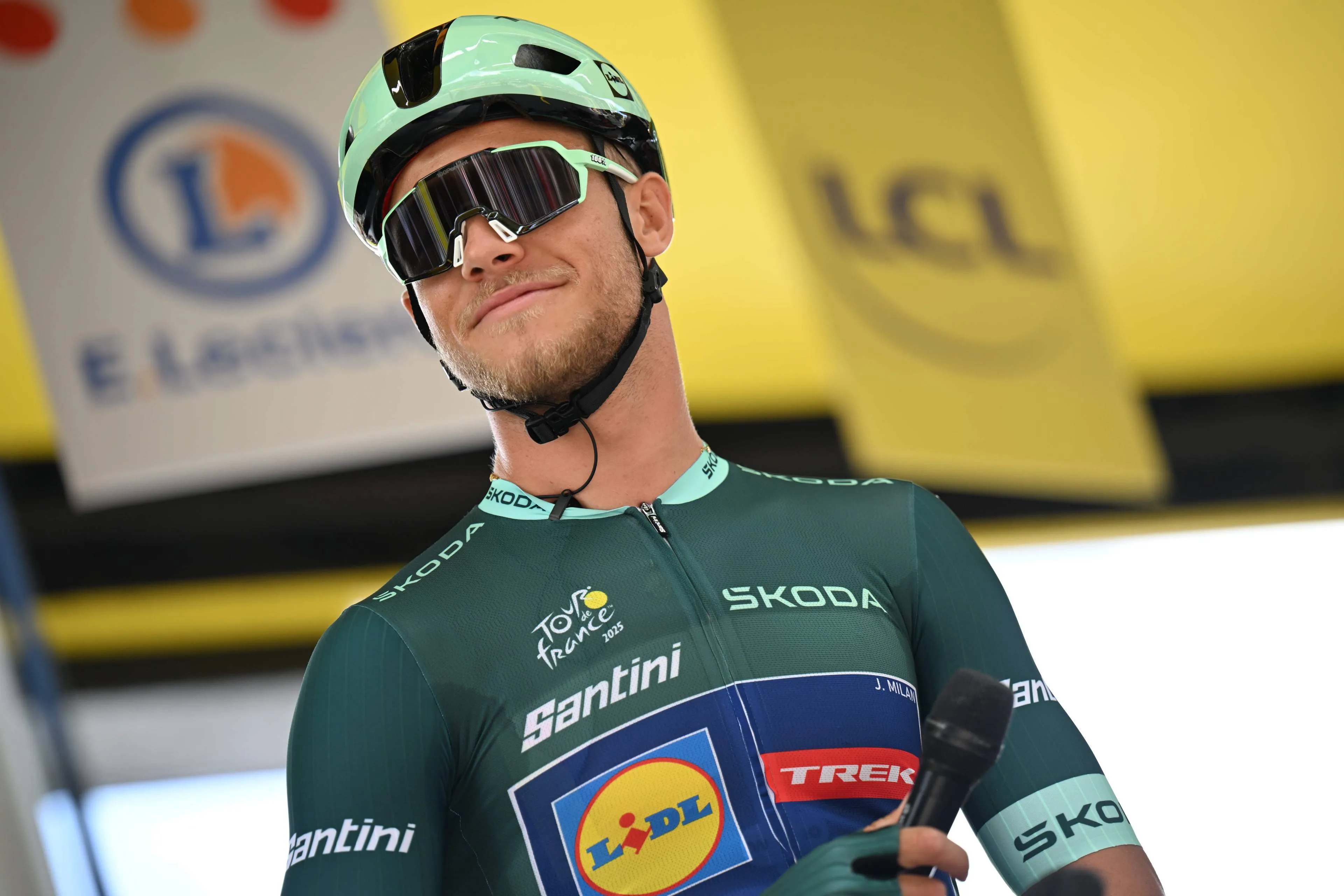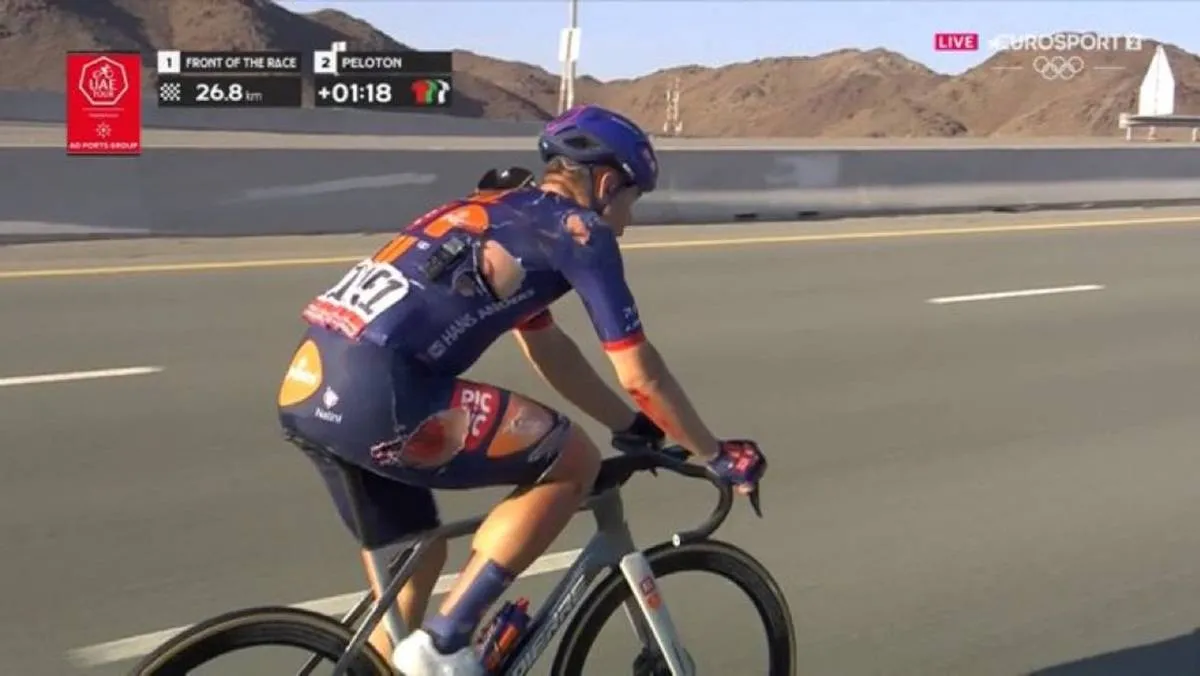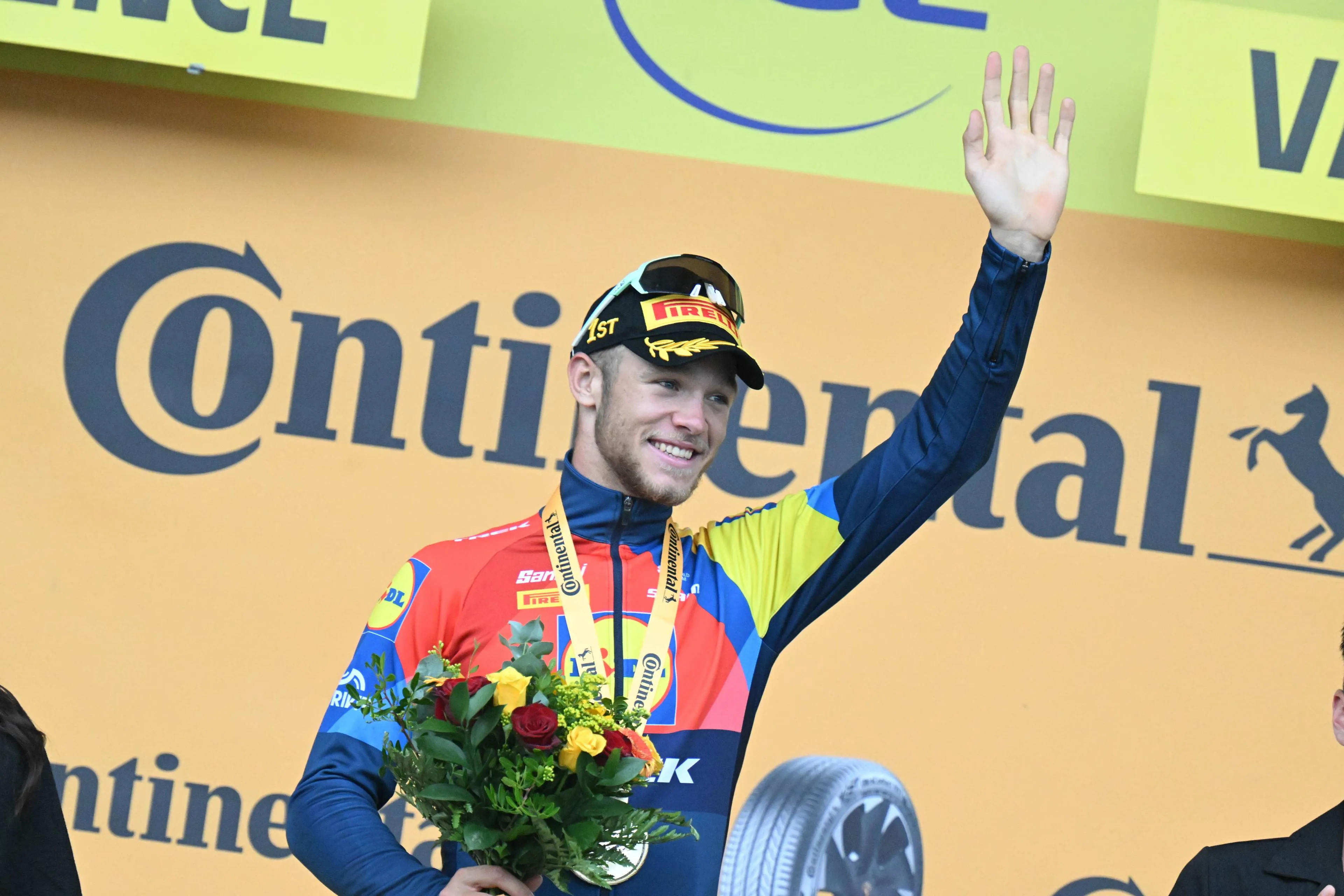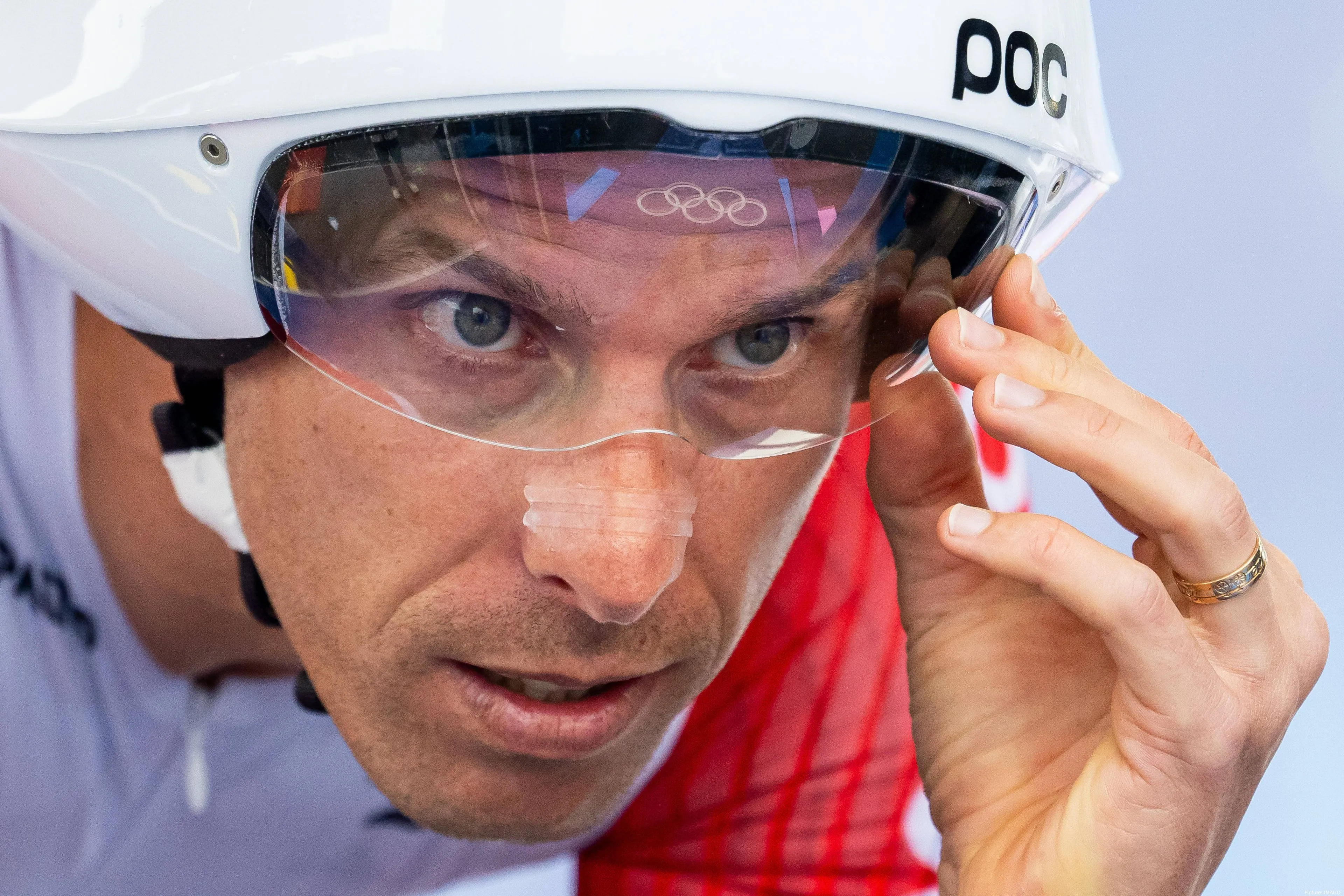
Who is Rui Costa?
Rui Costa is a Portuguese cyclist who rides for EF Education-EasyPost. He has become one of the most prominent classics riders in modern cycling, most notably becoming world champion in 2013.
Name: Rui Costa
Birthday: October 5, 1986
Birthplace: Póvoa de Varzim, Portugal
Turned pro: 2007
Height: 1.83m
Birthday: October 5, 1986
Birthplace: Póvoa de Varzim, Portugal
Turned pro: 2007
Height: 1.83m
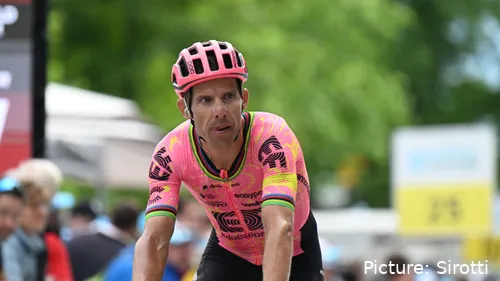
Rui Costa in a race
Rui Costa is a Portuguese cyclist born October 5, 1986 in Póvoa de Varzim, Portugal. Costa is best known as a versatile rider with strong performances in both one-day races and stage races. He comes from an athletic family and has a younger brother, Mário Costa, who was also a cyclist.
Rui Costa rides for the EF Education-Easypost team, where he is an experienced and valuable rider. In the past, he was particularly successful with UAE Team Emirates (formerly Lampre-Merida), where he scored numerous victories, including the world road title in 2013. He is also known for his victories in the Tour de Suisse, which he won three times in a row (2012, 2013, 2014). Rui Costa is married and the father of two children. Despite his age, he remains competitive in the peloton and is valued for his experience and strategic insights into the course.
Rui Costa began his professional cycling career in 2007 with Portuguese team Benfica. Already in his first year, he showed he was a talented rider, with strong performances in smaller races that put him on the radar of bigger teams.
In 2008 , Costa made the move to the Spanish team Caisse d'Epargne. Here he began competing in larger European races, where he further developed his skills. Although he had no victories that year, he laid the foundation for a successful career by regularly finishing in the top-10.
Read also
2009 was the year Costa took his first professional victory, with a stage win in the Four Days of Dunkirk. This success gave him more confidence and he continued to perform consistently in various stage races and one-day races, which gave him more responsibility within his team.
In 2010 , Costa really broke through with a stage victory in the Tour de Suisse. He proved he was an excellent climber and all-rounder, which reinforced his status in the peloton. The following year, 2011, he scored one of the most important victories of his career by winning a stage in the Tour de France, further confirming his reputation as a top climber.
The year 2012 was particularly successful for Costa. He won the Tour of Switzerland for the first time, a feat he would repeat in subsequent years. He was increasingly seen as one of the leading all-rounders in the peloton, with strong results in several major races.
2013 was the highlight of Costa's career. He won the Tour of Switzerland again and reached the absolute pinnacle by becoming world road champion in Florence. This world title marked the biggest success of his career and established him as one of the best riders in the world.
In 2014 , Costa continued to perform at a high level, winning the Tour of Switzerland for the third time in a row. These performances made him one of the best tour riders in week-long stage races. He also continued to perform consistently in the Tour de France and other major races, further cementing his status as an elite rider.
Although 2015 did not bring the same big wins, Costa continued to perform strongly with podium finishes in multiple races, including Paris-Nice and the Tour de Romandie. He remained a reliable and consistent rider within his team, and his role as a leader and strategist became increasingly important.

Rui Costa at the Paris 2024 Olympics
In 2016 , Costa achieved some strong results, including a victory in the Tour of Abu Dhabi. He remained an important force within his team and performed well in WorldTour races, with top-10 places in several stage races and one-day races.
The year 2017 saw Costa stabilize his performance. He again won the Tour of Abu Dhabi and achieved podium finishes in other important races. Despite not always being in the spotlight, he remained an indispensable force within his team, especially in tough mountain stages and difficult one-day races.
In 2018 , Costa remained competitive in the peloton, with strong performances in several stage races such as the Tour of Oman, where he took the overall victory. He also continued to play an important role in the Tour de France, where he supported his team in the mountains and proved his versatility.
2019 was another year of consistency for Costa. He achieved top-10 finishes in several stage races, including the Tour de Romandie, and continued to be a valuable all-rounder for his team. His experience and tactical acumen made him an important rider in both one-day classics and stage races. In 2020, despite the challenges of a season affected by the COVID-19 pandemic, Costa continued to perform at a high level. He took a victory in the Tour of Valencia and remained an experienced and strategically important rider within his team.
2021 saw Costa remain active in the peloton, with solid performances in both one-day races and stage races. He achieved top-10 finishes in races such as the Tour de Romandie and remained a reliable force on the team, further developing his role as a mentor to younger riders.
In 2022 , Costa remained competitive with strong performances in several races. He played a supporting role in grand tours and stage races and remained an important rider for his team in difficult mountainous stages, further underscoring his value to the team.
2023 marked a continuity in Costa's career, where he continued to perform and play an important role within his team. He achieved places of honor in multiple stage races and remained an influential rider in the more difficult one-day classics, with his experience becoming increasingly valuable.
In 2024 Costa signed with American EF Education-EasyPost but had a tough start to the season, with a crash at the Volta ao Algarve causing injuries that saw him out of competition from February to June. He won the Portuguese national title in Santa Maria da Feira before a return to the Tour de France - where he was rather absent. He was then forced to abandon the Vuelta a España after suffering another crash.
claps 0visitors 0
Just in
Popular news
Latest comments
- Fabio cannot catch a break.mij19-02-2026
- OK, today is the "air conditioner"... yesterday was a cramp... on saturday a bee will sting him in his tongue... his tongue will swell up and mustafa gets no oxygen. Because of his swollen tongue, Remco won't be able to give us a new excuse. Remco and the spanish rat Ayuso should be on the same team. They both have a ton of excuses and both of them are liars. Ad acta.Mou-Cro-HR19-02-2026
- Florian Lipowitz is secretly happy
 Rafionain-Glas19-02-2026
Rafionain-Glas19-02-2026 - The crucial thing to remember is that Remco was broken by the pace of Gall and Tiberi, not Del Toro's. Remco's excessive antics are because he doesn't want anyone to think that he's 'genuinely' struggling. You can always say 'he got cramps' because 'his preparation didn't go to plan', but the thing is that there is a limit to the number of excuses and exceptions that there can be. Eventually everyone just accepts that he's reached his ceiling on the climbs.
 Rafionain-Glas19-02-2026
Rafionain-Glas19-02-2026 - Bahraini suspicious..Santiago19-02-2026
- The problem is, a British 'boss' opening the gates, when the native workers not wanting them!
 leedorney19-02-2026
leedorney19-02-2026 - Who is overrating him on climbs? Everyone knows since ages it’s his weakness and needed years of work. Question us if he can do enough about it. For sure he won’t be able to improve his TT enough to compensate.Mistermaumau19-02-2026
- What do you call only seeing someone’s positives?Mistermaumau19-02-2026
- Remco banging his leg, just like he banged his saddle when pog dropped him. He ain't fooling anyone with those antics. I'm not a hater, but he's a bit overrated on serious climbs.Santiago19-02-2026
- Obviously isn’t learning from the Epstein fallout. The more you unravel the past the more undiscovered mess appears.Mistermaumau19-02-2026
Loading
Write a comment
